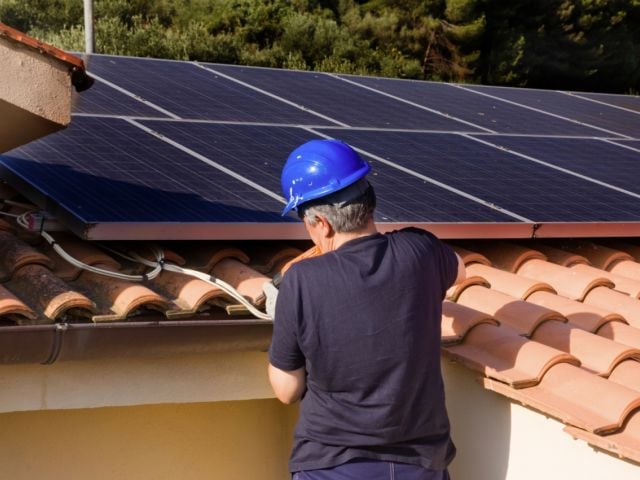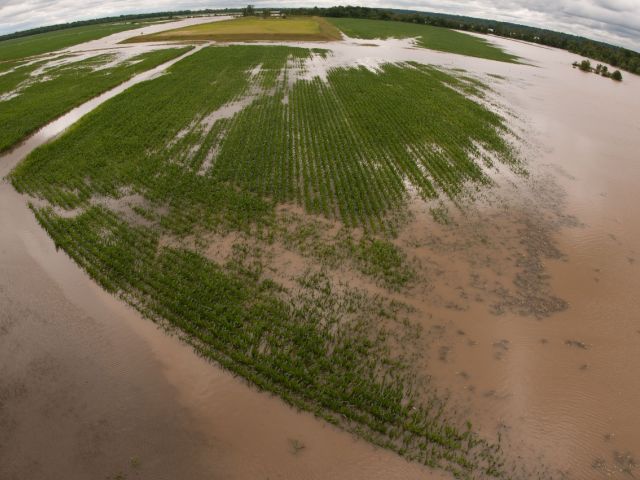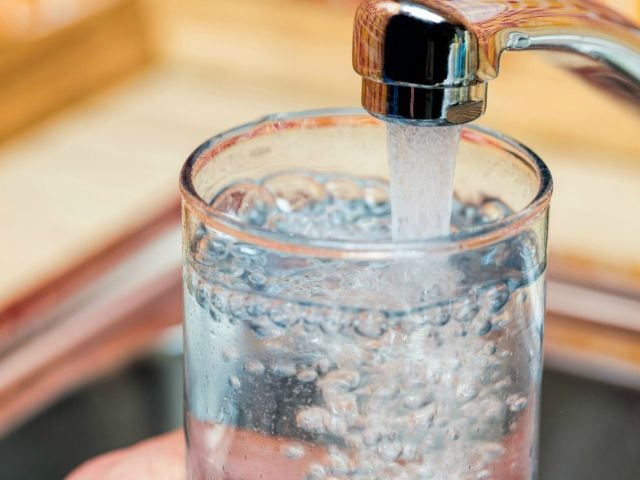Displaying 7273 - 7296 of 7456
Southern California oil spill highlights folly of relying on dirty fossil fuels
Efforts to clean up the massive oil spill off southern California’s coast should avoid using toxic dispersants, warns the Environmental Working Group, given the harm caused by the federal government’s...

EPA moves closer to proper disposal of ‘forever chemicals’ wastes
The Environmental Working Group today recognized the Environmental Protection Agency for taking the first step needed to properly dispose of the toxic “forever chemicals” known as PFAS.

Build Back Better bill includes $27 billion for historic climate-focused conservation efforts
The Environmental Working Group today applauds House and Senate leaders for including $27 billion in the budget reconciliation bill, to tackle a growing backlog of farmers who need help addressing the...

La EPA sigue sin actuar ante la contaminación química tóxica generalizada en el agua potable de Estados Unidos
Millones de personas en los Estados Unidos están bebiendo, sin darse cuenta, agua que incluye un cóctel tóxico compuesto por contaminantes relacionados con el cáncer, daños cerebrales y otros graves...

Research
State of American drinking water
For too many Americans, turning on their faucets for a glass of water is like pouring a cocktail of chemicals. Lead, arsenic, the “forever chemicals” known as PFAS and many other substances are often found in drinking water at potentially unsafe levels, particularly in low-income and underserved communities. From the lead contamination crisis in Flint, Mich., to widespread radium pollution in

Bill to ban ‘forever chemicals’ from food packaging would eliminate major source of exposure
A bill introduced today in Congress would ban the toxic “forever chemicals” known as PFAS from food packaging, an avoidable source of exposure to the harmful substances.

Dangerous levels of mercury found in skin creams sold on Amazon, eBay and other online retailers
A new report from the Zero Mercury Working Group finds almost half of skin lightening creams tested contained dangerously high levels of mercury but continue to be sold by online retailers like Amazon...

EWG testimony on agriculture and the climate crisis
Attached is EWG’s testimony to the House Subcommittee on Conservation and Forestry of the House Agriculture Committee on the role of USDA programs in addressing climate change.
Study: California’s rooftop solar incentives drive installations for working-class families
Incentives provided by states like California to low-income and working-class families help drive adoption of residential rooftop solar, according to a new study.

EWG news roundup (4/8): 2022 Shopper’s Guide to Pesticides in Produce™, contaminated tap water tops list of public’s environmental concerns and more
EWG news roundup (4/8): Here’s some news you can use going into the weekend.

The local environmental disasters that inconvenience bitcoin’s apologists
EWG knew the campaign we’ve joined to confront bitcoin’s serious energy and climate challenges would generate strong reactions from the bitcoin community.

EWG analysis: Almost all new food chemicals greenlighted by industry, not the FDA
Nearly 99 percent of all food chemicals introduced since 2000 were greenlighted for use by the food and chemical industry, according to a new EWG analysis – not by the Food and Drug Administration...

EWG: ‘Forever chemicals’ may taint nearly 20 million cropland acres
The toxic “forever chemicals” known as PFAS could be contaminating nearly 20 million acres of U.S. cropland, according to an EWG estimate.

Study: Wireless radiation exposure for children should be hundreds of times lower than current federal limits
A peer-reviewed study by the Environmental Working Group recommends stringent health-based exposure standards for radiofrequency radiation emitted from wireless devices for both children and adults...

California announces bold public health goals for PFOA and PFOS in drinking water
Today the California Office of Environmental Health Hazard Assessment, or OEHHA, proposed bold new limits to regulate the toxic “forever chemicals” known as PFAS in drinking water.

EWG news roundup (7/23): EWG calls for stricter wireless radiation standards, PFAS legislation advances on Capitol Hill and more
EWG news roundup (7/23): Here’s some news you can use going into the weekend.

Defense Department delayed PFAS cleanup, ignored health risks, Inspector General says
The Defense Department responded too slowly to the threats posed to military service members by the toxic “forever chemicals” known as PFAS and is failing to track the health risks facing military...

California protects kids with lead testing for child care drinking water
California regulators today launched their most health-protective program to test drinking water for lead in licensed child care facilities, issuing new guidelines that also require significant...

On protecting consumers from toxics in cosmetics, U.S. lags at least 80 countries
U.S. efforts to promote consumer safety by regulating chemicals and contaminants in cosmetics are falling further behind the rest of the world, according to a new EWG analysis.

New lawsuit contends period products contain ‘forever chemicals’
Period products have come under fire in the past for containing high levels of the “forever chemicals” known as PFAS. Now another manufacturer of period underwear is in legal hot water because their...

EWG analysis: In the Mississippi River region, the climate crisis helped run up a $39.5B taxpayer bill for crop insurance premiums
Crop insurance premium subsidies in the Mississippi River region cost taxpayers almost $39.5 billion between 2001 and 2020, a new EWG analysis of Department of Agriculture data finds.

EWG applauds updated bill limiting ‘forever chemicals’ discharges into water
The Environmental Working Group today applauds Sen. Kirsten Gillibrand (D-N.Y.) and Rep. Chris Pappas (D-N.H.) for leading fresh legislative efforts to limit discharges of the toxic “forever chemicals...

What if the U.S. produced all the world’s beef?
The U.S. leads the world in beef production – only Brazil and China even come close. But what does this mean for the climate crisis?

Tofu is made not from soybeans but from their milk. Although native to east Asia, soybeans are also grow in the United States. About 94 percent of the U.S. soy crop is genetically modified, so it’s best to choose organic soy, if possible. Tofu is made by curdling soy milk with heat and a coagulant like nigiri, the curds are then pressed into a sliceable cake. Tofu is available in varying degrees
